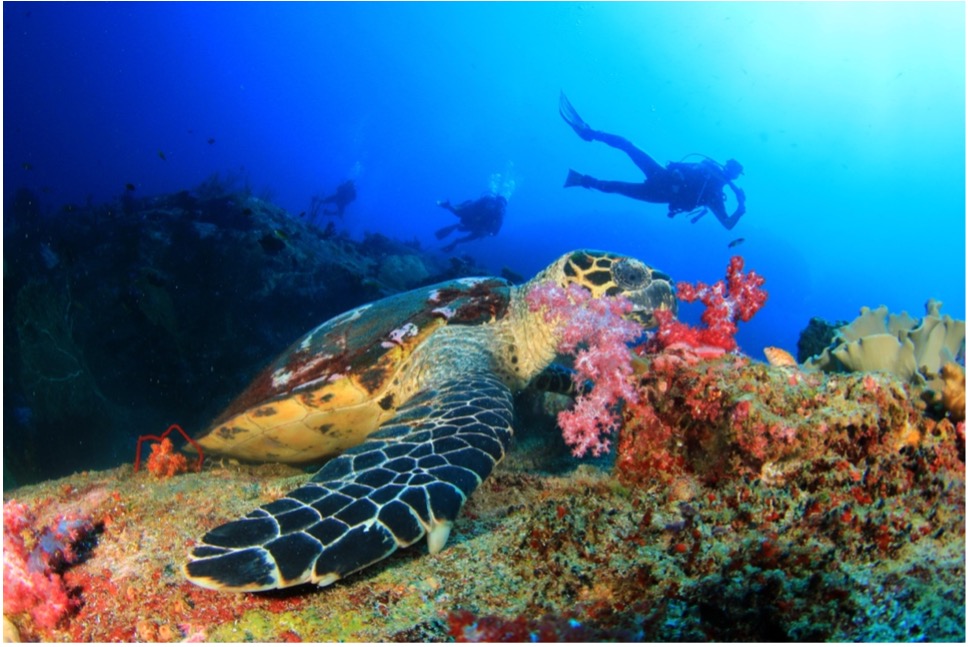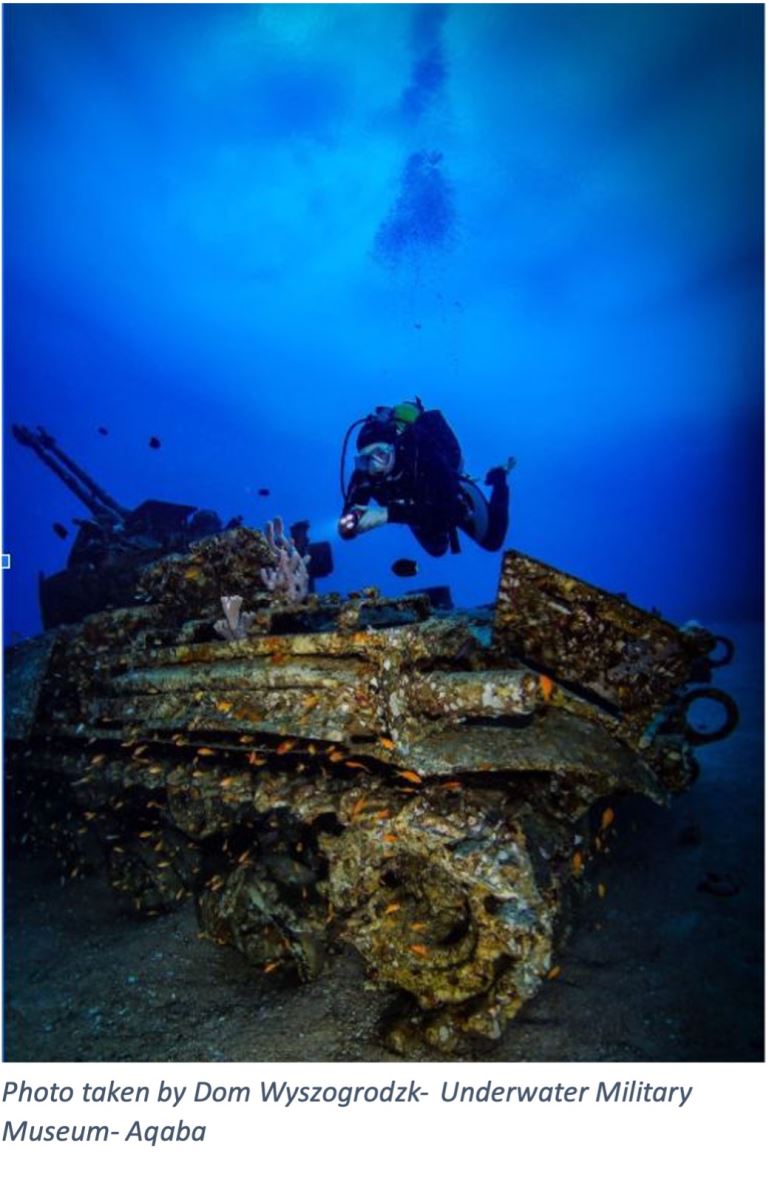Exploring the Depths: What is Diving Tourism?
Diving tourism is a growing segment within adventure travel, offering experiences that bring travellers up close to marine life and underwater landscapes like coral reefs, shipwrecks, and unique marine habitats. It’s an industry that appeals to millions worldwide, with around 6 million Europeans actively participating in diving activities. As interest surges, destinations globally are tailoring their offerings to meet the demand for high-quality, sustainable dive experiences.
.jpg)
Countries like the UK, France, and Germany lead the European dive tourism market, with divers seeking opportunities to experience new underwater ecosystems. For many, dive tourism is not just a hobby but an immersive journey that promotes awareness and respect for marine environments. But for the industry to thrive, it must prioritize protecting these environments from overuse and degradation.
Diving Tourism and the Call for Sustainability
With the impact of climate change, pollution, and overfishing, our oceans are under greater threat than ever before. Dive tourism, when managed responsibly, plays a key role in supporting marine conservation. By generating income for local economies, responsible dive tourism can provide financial resources for preserving and protecting these underwater ecosystems. However, achieving this requires careful planning, commitment to sustainable practices, and collaboration among dive operators, local authorities, and divers themselves.

Many European divers are highly eco-conscious, actively seeking experiences that have minimal impact on marine habitats. This rising demand for responsible diving is reshaping the industry, pushing operators worldwide to adopt best practices, such as reef-friendly policies, environmental education, and community involvement. Through conscientious efforts, dive tourism can offer more than just a recreational activity—it can serve as a tool for long-term ecological preservation and sustainable development.
Acorn Tourism’s Dive into Sustainability
Acorn Tourism has had the privilege of leading and supporting dive tourism projects that exemplify sustainable development. Each project is unique, and each has had a meaningful impact on both the environment and the local communities involved.
One standout project was the Blue Tourism Economy Assessment on Ascension Island. Collaborating with local stakeholders, Acorn Tourism conducted a comprehensive analysis to assess the potential for a blue economy based around dive tourism on this remote Atlantic Island. The project revealed Ascension Island’s rich marine biodiversity as a unique attraction for eco-conscious divers. By recommending sustainable practices, such as establishing marine protection zones and promoting reef-friendly diving, Acorn Tourism has laid the foundation for a tourism model that both supports local livelihoods and safeguards the island’s underwater ecosystems.
In the South Pacific, Acorn Tourism created tailored Backpacking, Cultural, and Diving Niche Market Profiles to help local businesses and policymakers understand and cater to niche tourist demographics. The project highlighted the importance of dive tourism as a unique attraction in the region, especially for backpackers and culturally curious divers. Through detailed traveller profiles and practical recommendations, Acorn Tourism guided South Pacific destinations in developing dive tourism offerings that honour local culture and minimize environmental impact, balancing authenticity with sustainability.
 Aqaba, in Jordan, serves as an exemplary case of successful sustainable dive tourism. Recently recognized in Green Destinations' Top 100 Stories for the third consecutive year, Aqaba has made significant strides in balancing tourism growth with environmental preservation. The Aqaba Special Economic Zone Authority (ASEZA) faced the challenge of protecting the fragile coral reefs of the Red Sea while managing the increasing popularity of dive tourism. To address this, ASEZA collaborated with private sector partners and local residents to scuttle military wrecks, creating artificial reefs that now form the world’s first Underwater Military Museum. This initiative not only alleviated pressure on natural coral ecosystems but also boosted Aqaba’s dive tourism sector, attracting over 10,000 new dives since 2017.
Aqaba, in Jordan, serves as an exemplary case of successful sustainable dive tourism. Recently recognized in Green Destinations' Top 100 Stories for the third consecutive year, Aqaba has made significant strides in balancing tourism growth with environmental preservation. The Aqaba Special Economic Zone Authority (ASEZA) faced the challenge of protecting the fragile coral reefs of the Red Sea while managing the increasing popularity of dive tourism. To address this, ASEZA collaborated with private sector partners and local residents to scuttle military wrecks, creating artificial reefs that now form the world’s first Underwater Military Museum. This initiative not only alleviated pressure on natural coral ecosystems but also boosted Aqaba’s dive tourism sector, attracting over 10,000 new dives since 2017.
Acorn Tourism is proud to have worked with Aqaba and ASEZA for more than four years, guiding their commitment to sustainability. This collaborative effort stands as a worldwide example of how to harmonize environmental stewardship with economic development. The overarching objective of the Jordan Sustainable Tourism Programme 2021-25 supports the Jordanian tourism sector in operating sustainably and responsibly. By encouraging collaboration between public and private sectors, the program has made significant progress in establishing best practices for sustainable tourism, resulting in awards and recognition for local initiatives.
These case studies highlight how sustainable dive tourism can drive positive change for both communities and ecosystems. As more destinations recognize the benefits of responsible practices, the dive tourism market presents significant growth opportunities for those committed to environmental stewardship
Market Potential and Future of Dive Tourism
According to market studies conducted from the Centre for the Promotion of Imports (CBI), the dive tourism market holds immense potential for destinations committed to sustainable development. As travellers increasingly seek meaningful, eco-conscious experiences, destinations that prioritize sustainability are positioned to thrive. European divers, in particular, prioritize safety, quality, and environmental responsibility when choosing dive destinations, reflecting a broader trend toward sustainable adventure tourism.
For destinations aiming to capture this market, it’s essential to meet these expectations with thoughtful planning and environmentally friendly policies. By aligning with sustainable practices, dive tourism businesses can attract responsible travellers while protecting the natural resources that make their destinations unique.
To illustrate these insights, we’ve created an infographic highlighting key statistics about diver demographics, market trends, and the growing importance of sustainability in diving practices..jpg)
This infographic showcases vital information from the CBI studies, emphasizing the size and preferences of the diving market. As operators and destinations adapt to these insights, they can better align their offerings with the expectations of today’s divers.
.jpg)
Reflecting on Our Role in Conservation
Diving tourism is more than an opportunity to marvel at the beauty of marine life—it’s a call to action. Each dive offers a chance to reflect on our relationship with the ocean and our responsibility to protect it. Whether as travellers, dive operators, locals, or as consultants, market researchers, and project developers, we each have a role to play in ensuring that our actions contribute to the health and sustainability of our marine ecosystems.
As we immerse ourselves in the marvels of the underwater world, let’s consider how we can safeguard these environments for future generations. Through mindful choices and sustainable practices, and with our commitment at Acorn Tourism to promote responsible tourism development, we can ensure that these ecosystems continue to inspire appreciation, foster understanding, and remind us of our shared responsibility to protect our planet’s most precious resources.
To learn more about the market for European dive travellers and the latest trends in sustainable dive tourism, check out the insightful studies from the Centre for the Promotion of Imports (CBI). Discover how your destination can thrive in this growing market while supporting marine conservation efforts. Access the CBI studies here. To explore more diving projects from Acorn Tourism, click here.
Related
Comments
Nobody has commented on this post yet, why not send us your thoughts and be the first?


.png)





